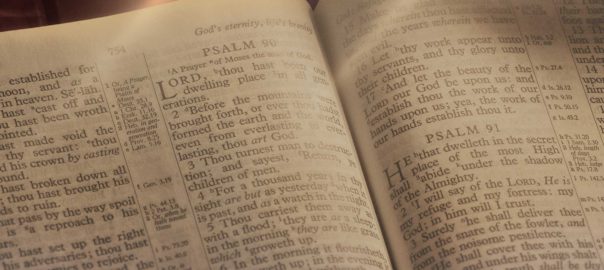“If you could go back in time to observe just one historical event, what would it be?”
This is one of the ice-breaker questions we use in our small groups; and over the years some interesting answers have surfaced. Some were more “American” in nature: “the signing of the Declaration of Independence” … “the Battle at Gettysburg.” Others were more personal in nature: “the day my mother and father met.” And, of course, many were Biblical in nature: “creation” … “the parting of the Red Sea” … “the Crucifixion and Resurrection” (being the most common answer).
Certainly, all of those events would be fascinating to witness. Still, another event I would add to that list would be to observe the life of Jesus when He was growing up. It would be interesting to watch how His parents related to their perfect Child … and how His younger “half siblings” responded to their perfect Brother. (“Why doesn’t Jesus ever get in trouble!”) Did He play games with others His age; or was most of His free time spent reading the Scriptures in Nazareth’s synagogue? Perhaps most of His life – both at home and around town – was lived in the background, not calling attention to Himself.
Jesus, of course, did not start out as a fully developed adult male. We are told that the Son of God was clothed in humanity as a developing Fetus in Mary’s uterus (Luke 1:31). We also read that as He matured from childhood to adulthood, He “kept increasing in wisdom and stature, and in favor with God and men” (Luke 2:52). That is, Jesus went through all the mental and physical stages of human development … and He did so without sinning.
These stages of human development suggest the possibility that there was a time – during His infancy and early childhood – that a very young Jesus was not aware that He was Israel’s long-awaited Messiah. (It is unlikely that the mind of the newborn King, lying in Bethlehem’s manger, had developed to that point.) But certainly, by the age of 12 He knew (Luke 2:42-49). Had Joseph and Mary told Him? Or did they wait for “an angel of the Lord” or the Spirit of God Himself to do so? And was this revelation gradual or in a moment of time? We do not know. But by whatever means His Divine status and calling were revealed to Him, can you imagine what that must have been like … to come to the realization that all the Messianic prophecies referred to Himself!
And what was it like for this young Teenager to attend synagogue every Sabbath, listening to the rabbi read passages foretelling of His coming Crucifixion and eventual reign over the nations, knowing (secretly) that He was that promised One! What was it like for Him to use a hammer and nails six days a week, week after week, year after year, knowing such passages as Psalm 22 and Isaiah 53? (We should not let that fact escape our notice. Every day of His life, while working in Joseph’s carpentry shop, our Savior was reminded of what lay ahead for Him. And yet, He remained faithful to the will of God His Father.)
Luke chapter 20 also adds to our understanding of Jesus’ younger life. From this chapter we can see that, while growing up, He spent hours upon hours immersing Himself in the Scriptures. Perhaps He went to the synagogue each day to read from the scrolls. Perhaps he spent a lot of time with the rabbi, asking him questions, listening to him teach. That is what we find Him doing in Jerusalem when He was twelve years old (Luke 2:46). Jesus invested 30+ years of His life cultivating His mind in knowledge and wisdom. And He used the Jewish Scriptures (what we call the Old Testament) to do so.
When His public ministry finally began, Jesus would draw from that insight and understanding considerably. After years of saturating His mind with Truth, He was ready to explain God’s Word to those who were hungry to receive It … and to reprove those who were just as determined to reject It. In His teaching Jesus was able to use reason, cite current events, create illustrations (parables) and quote from rabbinic commentaries. But the vast majority of His instruction included quotes from the inspired Scriptures.
Chief priests, scribes and elders: “We do not accept Your authority or Your teachings. Why should we? From Whom did You receive Your message?” (20:1-19)
- His final answer came in the form of a parable (using a vineyard), followed by a prophetic passage: “Because I am the Son of the Father, I was sent with His authority. And I have come to claim My Kingdom. But you have already shown that you will not submit to My authority, just as it is written: ‘The Stone which the builders rejected, this became the chief Cornerstone.’ ” (Psalm 118:22)
Sadducees: “We intend to discredit the integrity of Your teaching; and we will do so using the doctrine of the resurrection. There is no such thing (as You say there is).” (20:27-40)
- “It is you Sadducees who are mistaken. Did not Yahweh say to Moses, ‘I AM the God of Abraham, Isaac and Jacob’? (Exodus 3:6) He did not say ‘I WAS their God’ but ‘I STILL AM their God.’ Contrary to what you teach, there is life after death. You do not know the Scriptures (the exchange at the burning bush), nor do you understand the power of God (to raise the dead).”
(Did you notice that the Master Teacher used the mere tense of a verb to prove the resurrection!)
Jesus then goes on the offensive. Through the vineyard parable, He had claimed to be the Messiah. Now He takes that assertion a major step forward: He states that He, the Messiah, is God Himself … fully Man and fully God. And once again, He uses the Scriptures to do so.
- First, He quotes Psalm 110:1: “The LORD says to my Lord, ‘Sit at My right hand until I make Your enemies a footstool for Your feet.’ ” Then Jesus does to His antagonists what they tried to do to Him … He silences them: “How can the Messiah be both David’s Son and his Lord at the same time?” (20:41-44)
By quoting just a few verses to answer His critics, Jesus claims to be both Israel’s Messiah and Israel’s God … the one true God … “the God of Abraham, Isaac and Jacob” … the “I AM” of the burning bush … Yahweh.
Without question, Jesus had an incredible mind! But He had more than that. According to Luke 20 (and, indeed, throughout the four Gospels), Jesus had an extraordinary command of the Scriptures. This suggests that, before His public ministry began, Jesus poured over the scrolls in Nazareth’s synagogue, probably from the time He first learned to read.
- So, how can our lives reflect more accurately, more fully, more consistently the Living Word of God? By investing time in the written Word of God.
- And how can we have an eternal impact in the lives around us? By saturating our minds with the Scriptures.
- And how can our lives become more stable … more composed … more content … more joyful … more at rest? Through a daily reading of the Bible.
Not books about the Bible but the Bible itself. Most surely, we need to consult the counsel of godly men and women who, themselves, have been instructed over the centuries by the Spirit of God through the Word of God. But if we are so busy that we have time for only one read, then let us lay aside our devotionals and our small group Bible study workbooks and our commentaries and our online sermons and our blogs (including the ones on this site); and let our first and foremost read be the God-breathed, life-changing Word of God.



